One year after the World Health Organisation (WHO) declared Ebola “a public health emergency of international concern”, Liberian Ebola survivors are still struggling to get their lives back on track.
It is a drizzly morning in the poshest hotel in the biggest Liberian city. But when Patrick Farley and his three friends enter, a new air of warmth suddenly takes over the room. Yes. Patrick is that kind of man whose personality can at once invigorate a dull, lifeless room. A man of round build, hoarse voice and confident carriage, he embodies the masculinity very few ladies will encounter without taking notice.
When he sits and sets about introducing his companions, he does so with typical Liberian swagger – an aura that a Nigerian on his first trip to the West African country finds both amusing and interesting. They are Arthur Becker – who over the next few weeks would prove one of the most reliable fellows anyone could have around – and Lena Magona and Abraham Paasawe.
“So, guys, let’s get started,” Patrick says, his voice laden with enthusiasm and his eyes dancing with animation.
Advertisement
In a few minutes, the conversation shifts from opening pleasantries to very serious issues, and Patrick soon has to turn the spotlight on himself. This is the point where an entirely different human is revealed. Bubbly and lively just minutes before, Patrick is suddenly wearing a sullen, subdued look, his voice croaking, his fingers trembling and tears welling up in his eyes. What would make such sturdy, imposing man lose his masculinity so soon? He has quite a story to tell.
DOWN THE DRAIN
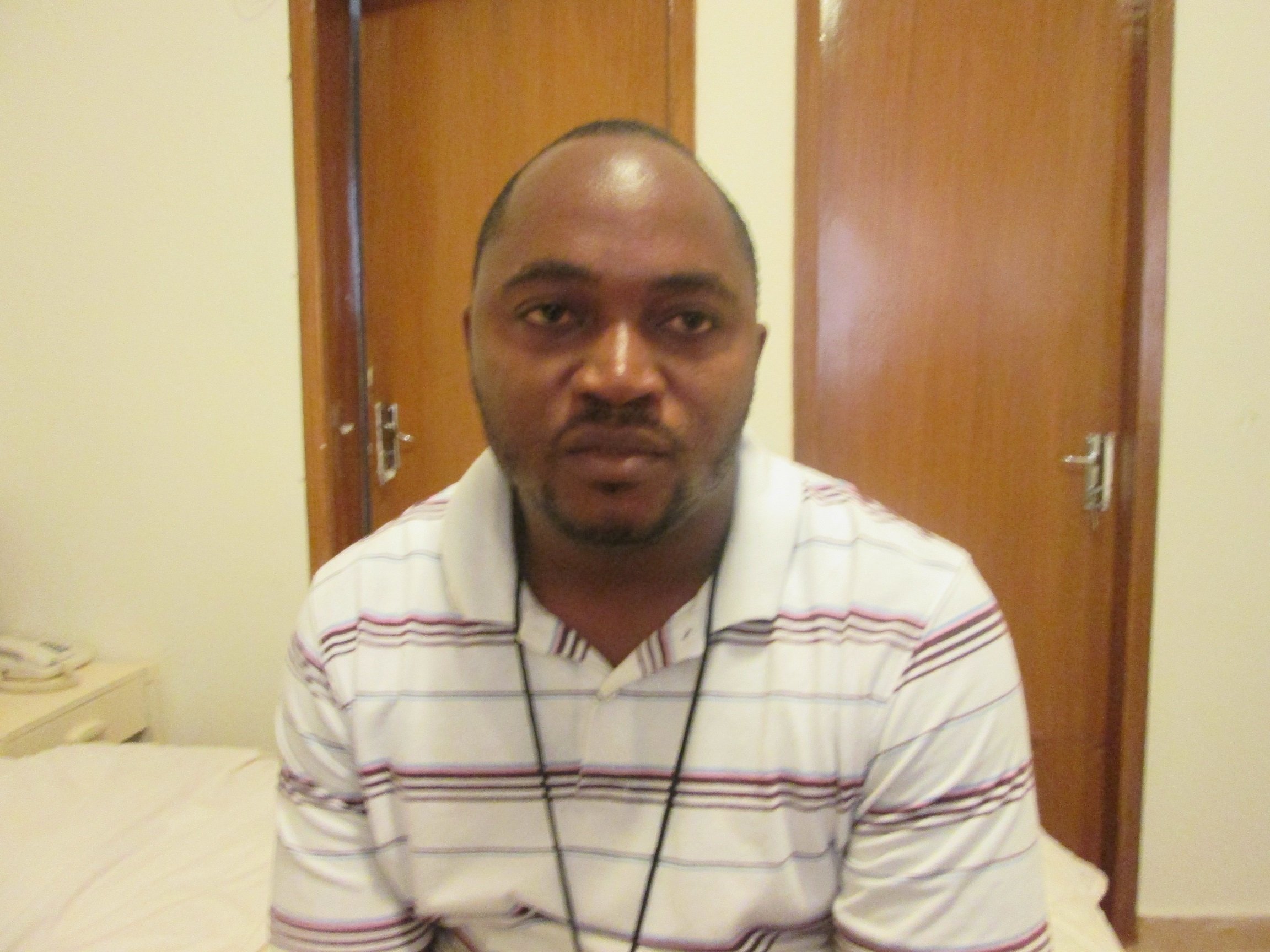
October 13, 2014 — the day Patrick was pronounced Ebola-free — should have been his happiest. But it turned out to be his saddest.
An outbreak of Ebola Virus Disease (EVD) that began in Guinea in December 2013 was spreading fast. And it was killing fast, too. Across West Africa, 9,191 people were suspected to have been infected at that time; 4,546 had died. In his native Liberia, 4,262 people had been infected while 2,484 had died. However, when the doctors announced to Patrick that he was free to go home after more than a week at the Ebola Treatment Unit (ETU) where he was hospitalized for Ebola infection, his joy was short-lived.
Advertisement
“My dad came for me that day with his vehicle but I could not see a smile on his face. It was a moment when everybody was meant to be happy, but they were a little sad,” he says in a slow, mournful tone.
“I tried to figure out what actually was going on, but he couldn’t just tell me. I got into the car and we left. When I reached home, my mother was nowhere around. She had died.
“That same day, my six-month-old son was placed in the ambulance and taken to where I just came from. Two days later, he died. It’s so pathetic, you know. I can’t understand why such a thing happened. I can’t really understand what Ebola has done.”
A community youth volunteer who specialised in cleaning roads and community halls as well as organising capacity-building initiatives for young people, Patrick contracted Ebola in the line of duty.
Advertisement
“I work from Mondays to Fridays, while I dedicate Saturday and Sundays to the community initiatives. It was in the course of the activities that I started getting weak. I was weary and I lacked appetite. My eyes were getting red,” he recalls, radiating a befuddled look.
“When I got home, I asked my wife to take me to a nearby clinic, where I tested malaria positive and typhoid reactive. I was given some pills to take. Some malaria drugs, some antibiotics.
“When I returned home, the sickness started to intensify; I then went to Ahmadiyyah Pickup clinic, where I was placed on one-week treatment. After that treatment, I started seeing rash on my body and I began to stool and vomit, so the doctor told me to take advantage of a bigger hospital. My dad took me to Redemption Hospital, one of the bigger hospitals on the Bosho Allen. My specimen was taken and I was pronounced Ebola-positive.”
Patrick finds it difficult to quantify his loss, saying: “I lost everything that I had. Everything I worked for in the past five years, I lost it all within a month. They just went down the drain.”
Advertisement
THE PRAYER OF DEATH
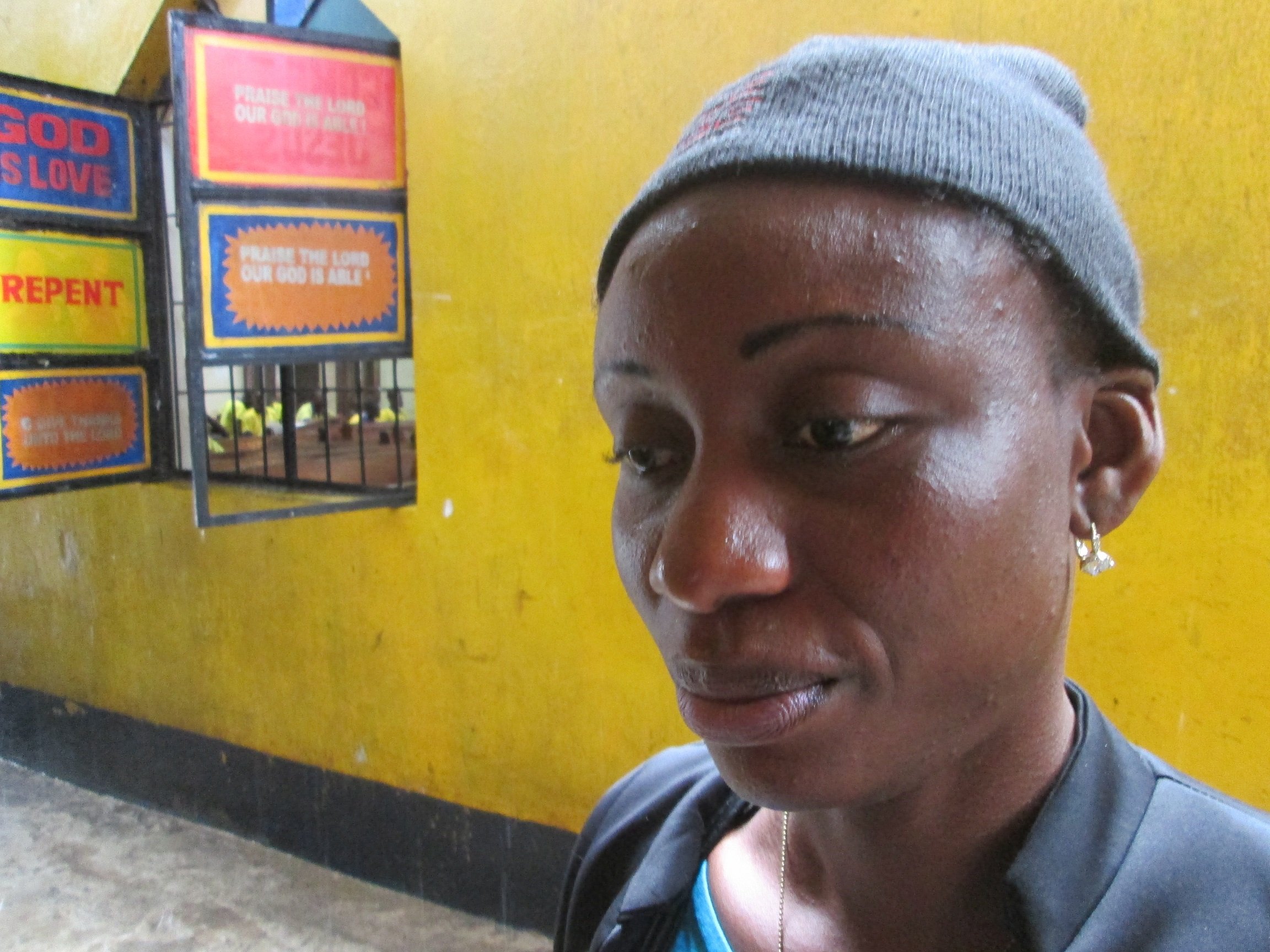
On August 6 and 7, 2014, representatives of four West African countries met with the emergency committee of WHO via teleconference. Back then, Liberia, Guinea, Sierra Leone and Nigeria had all caught the virus. With a total of 1,711 cases (1,070 confirmed, 436 probable, 205 suspect), including 932 deaths, WHO formally declared the epidemic a “public health emergency of international concern” on August 8.
Around the time when that declaration was being made, 28-year-old Josephine Karwah was contracting the virus in a manner signposting the inter-connectedness of African family living and how much it aided the rapid spread of Ebola. Her pastor-uncle had laid hands on a member of his congregation during a rigorous prayer session. As it would turn out, the congregant was already Ebola-positive.
Advertisement
In a matter of days, the pastor came down with the virus. And with Liberia’s over-stretched healthcare system, homecare was the immediately available option if he was to have a sniff at survival. Her father and mother provided that care, and all three would eventually die of the virus. But not until they had passed it on to Josephine, who, quite unfortunately, was five months pregnant.
“Ebola is a very dangerous virus. The virus separated my legs, so I couldn’t walk,” she says, looking pale and dejected as she spoke in an interview at a school in Garworlohn Township on the outskirts of Monrovia, where the Partnership for Research on Ebola Virus in Liberia (PREVAIL) had arranged for survivors to meet with the public.
Advertisement
“I felt severe joint pains that I had to walk with stick. By that time, there was no hospital, so we were all home trying to see how best we could treat ourselves… until someone made a phone call that an ETU was available and I had to go.”
After two weeks at the ETU — including four days of “complete memory loss” — Josephine tested negative and was discharged. That was some extraordinary feat. In the whole of Liberia, only two other pregnant women managed it — and their identities still hadn’t been traced. It came at a cost, though: she lost her then seven-month-old pregnancy (in a miscarriage on the streets) and nine other members of her family: father, mother, two brothers, two sisters, an uncle, an aunt and a nephew. On the bright side, three kinsmen of hers survived.
Advertisement
“I saw some horrible things because Ebola comes with different signs and symptoms. I saw people with black teeth; I saw people run mad; I saw people with hiccups, which is very hard to survive from,” she says chillingly, with constant gritting of the teeth.
“I saw bleeding; people bled profusely from their eyes, ears, noses. The first blood could come from the eye, and it would splash on the person sitting closest to the patient. A lot of people died.
“In my room, 14 persons would die, and they would bring another 14. Someone would be well enough to help you with your feeding, and all of a sudden, the person would drop dead just like chicken. At a time, I lost my memory. I just woke up one day to see that I was naked, and they said that’s how I’d been for four days. I believe I survived from the world’s most dangerous virus.”
Discharged from the hospital and getting home, Josephine soon discovered that her home, both in the human and material contexts, was gone. She was so stigmatised that she wanted to return to the ETU. She suffered a miscarriage in the process.
“The day I packed my things to go back to the ETU was the day I had a miscarriage. Although I had my certificate [of freedom from Ebola] begging for car to take me to the ETU, no cab driver or car owner stopped for me. I had a miscarriage right on the streets. The pain I felt on that alone was tougher to bear than all I bore in two weeks at the ETU.
“I took care of myself. Some were watching me in a group but they did not help me because they were afraid that I was still carrying the virus. They came close but they couldn’t touch me. When they saw what I was going through, they had to tie a wrapper around me and the foetus came out. I went home to bury it all by myself. Then I began to grieve. Alone.”
Far from public belief, freedom from Ebola does not exactly equate freedom from its accompanying post-treatment ailments. From survivor to survivor, there are varying post-Ebola syndromes. Josephine is still battling the aftereffects of the virus. She occasionally experiences joint pains and has been living from hand to mouth ever since.
“My legs suddenly swell up to the point that I have to put off my shoes, and it stays like that until I apply hot water. Most of the survivors, I must admit, are quick to forget. When people talk to me, I have to jot it down so that I don’t forget.
“The doctors said we are only immune for 10 years. Now, tell me, what becomes of us after 10 years? The psychological trauma is also there. I have a four-year-old who survived the virus; and because she saw dead bodies being sprayed and put in disposable plastics, she jerks anytime she remembers.
“My parents had a clinic, but it was destroyed because we had Ebola. That was my source of livelihood. They destroyed all our belongings. All we have left is our empty house. I no longer have a roof over my head.”
REBORN BUT GROUNDED
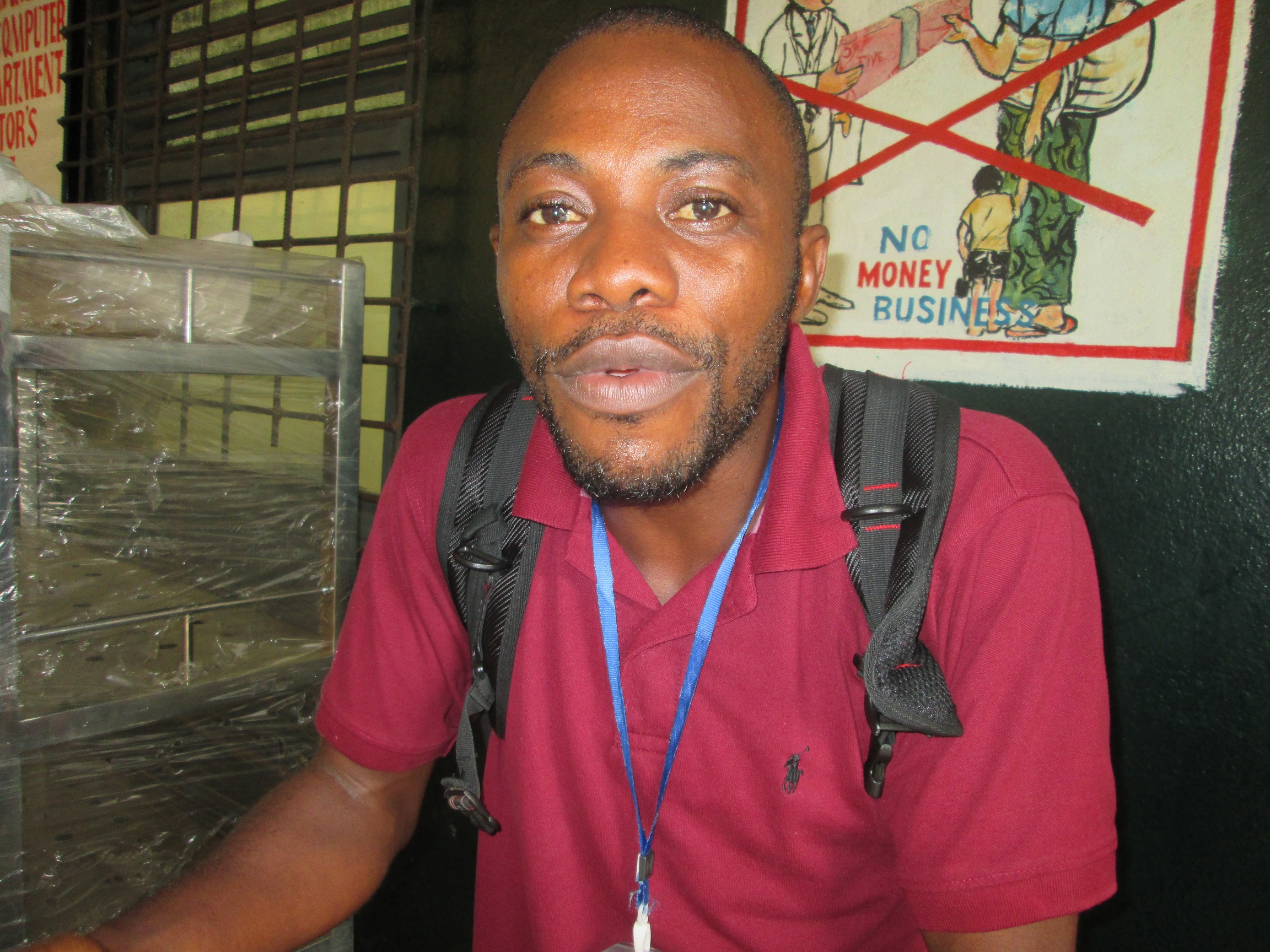
On October 20, 2014 — the day Prince Diane clocked 34 — he was certified Ebola-free and discharged from the ETU. Like Josephine, he contracted the virus while caring for someone: his mother-in-law who worked at two clinics. When he was certified hale, he said he had been “reborn”. What he, perhaps, didn’t know was that he had been reborn into a different life. Ebola had taken so much from him — and had even more to take — that life could never be the same again.
“When I left for the ETU, my whole home was destroyed. Everything was damaged because everybody was afraid in my community. They said I passed out at home three different times. They thought I died,” says Prince, whose mother-in-law as well as two sisters did not survive the virus.
Prince was hurrying out of Renaissance Hospital, Monrovia, but he agreed to spare some 15 minutes for an interview to relive his Ebola experience, and he was in cheery mood all through, although this was occasionally punctuated by moments of sadness whenever he had to recount his personal losses.
His two weeks at the ETU, he recalls, were “not easy at all”, especially as he had to ingest at least 39 drug tablets daily.
“It was 13 tablets after every meal. A lot of people died only because they didn’t eat enough quantity of food to match the power of the drugs.
“The ETU was a very scary place. It was my first time sleeping among dead bodies. My first day, 18 of us were in one tent; I saw 13 out of the 18 die and another 13 people brought in as replacement. Every day, I asked myself if my time to die had come. It was very terrible.
“I was discharged on my birthday. I was so surprised because they sang birthday songs for me at the ETU, then they tested my blood and it was negative. When they said, ‘Prince, you’re going home today’, I was shocked. I said God brought me here to be reborn. I called myself a baby because I was reborn. It was funny and sorrowful at the same time.”
Members of his community did not share in the optimism of his rebirth story, though; they avoided him like a plague once he returned home.
“Everybody thought I was dead because at that time, I was unconscious. People advised my fiancée to destroy all my belonging; everything. Even the mattress I was sleeping on, they burnt it.
“When I returned, everyone avoided me, even my friends. Till date, they feel like I am so dangerous to the society.”
His job was ‘destroyed’, too. He says: “Ebola has brought a setback in my life because I was working at ESBC (the Liberian Broadcasting System), but they’ve dismissed me and that is a big setback for me.”
Prince’s post-Ebola problems are heart and joints-related. “When I came out of the ETU, I was experiencing heart problems,” he says. “I was feeling very weak, so I went back to the ETU and they said I should drink a lot of juice and water.”
Nearly a year after his discharge from the ETU, Prince is still haunted by the ‘ghost of Ebola’, as he still feels unhealthy: “The heart pains are not totally gone and I can no longer read for a long time. Whenever I do, my head aches. I didn’t have all these problems before Ebola.”
Without a source of livelihood — save the meagre handouts from NGOs — Prince cannot yet marry his fiancée even though the relationship is surprisingly intact. And while he keeps hoping for a miracle, he spends his time volunteering as the national chairperson on recruitment and mobilisation for the Ebola Survivors Network.
REJECTED BY HIS PEOPLE
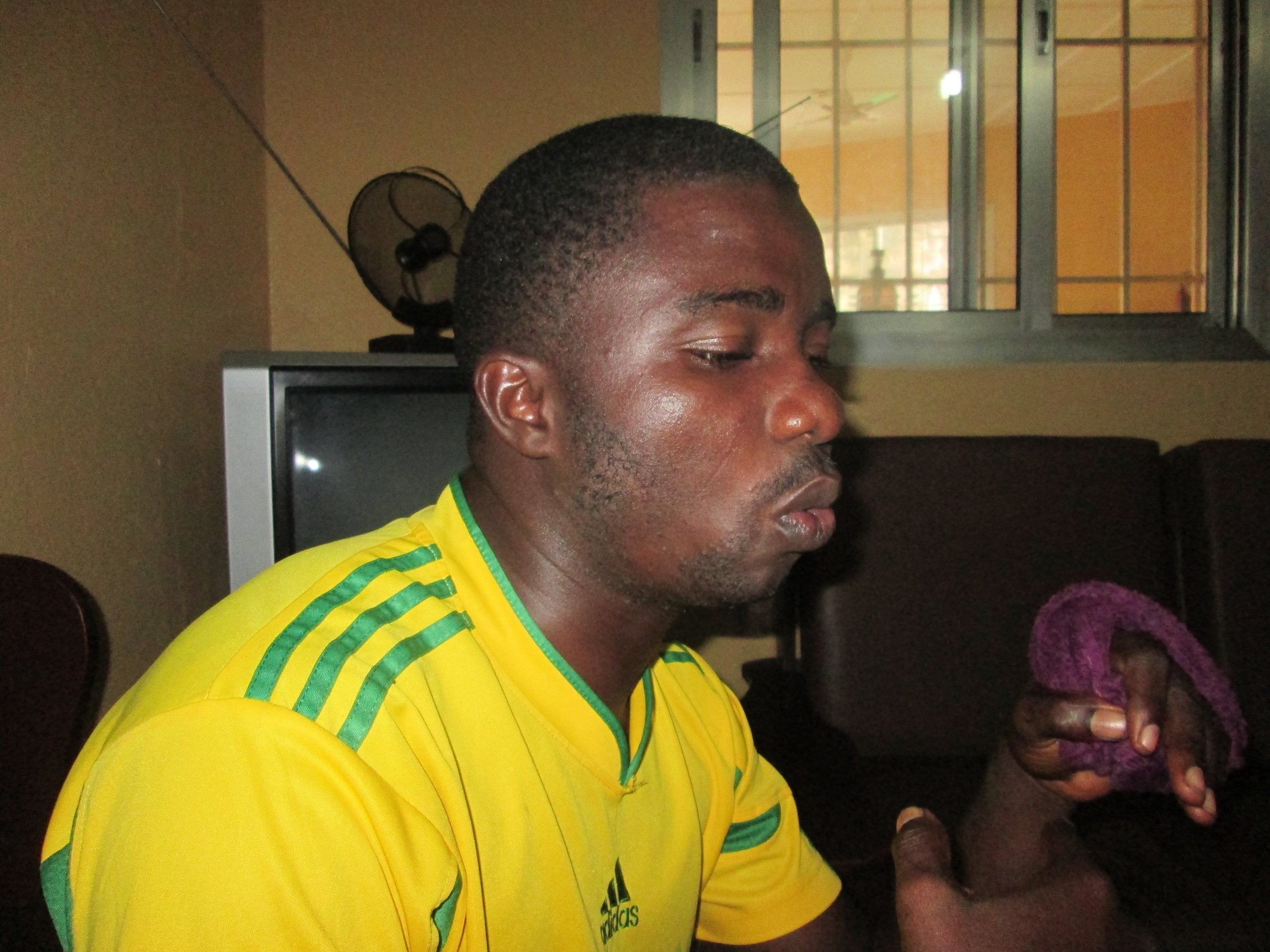
After surviving Ebola, Henry Tony didn’t have to be dismissed by his employers the way it happened to Prince. But he had to ‘sack himself’ when his colleagues began to avoid him like a plague.
When he speaks, Henry comes across as man dealing with his losses with equanimity. At the peak of those losses sit his son, wife and grandmother, all of whom died of Ebola. He loved his wife “so much” and his eyes would redden with invisible tears whenever he spoke about her.
“My wife caught the virus while trying to give me a son,” he recalls, momentarily taking his eyes off the camera to take in his grief.
“She gave birth and after one week, she came down with symptoms of serious fever. I took her to the clinic and they treated malaria, but when she started vomiting and convulsing, we were back at the clinic. We were trying to get her to the next clinic for further tests when she died. She bled to death.”
One week after burying his wife, it was Henry’s turn to show symptoms of the virus, alongside his two-week old baby and his aunt who was nursing the baby. He did survive the virus, but he hasn’t its aftereffects.
“I was working as the chief mechanic for NJ Enterprise,” he says.
“NJ did not drop me from the job, but I was facing stigmatisation. The normal things I was doing before, I found out that people responded in a strange way when I did them again. I was isolated. When I couldn’t bear it anymore, I voluntarily quit my job.”
Part of Henry’s post-Ebola crisis is his forced relocation (again due to stigma) from his house at Barclay Mission locality, as well as health defects he only began to notice after surviving the virus. Now, he lives on Pipeline Road in Paynesville, and is without a job.
“Some people suffer from impotency, eye problem. Some women are suffering from a suddenly-high libido; they just want to have sex. There are others experience extreme difficulties with urinating,” he says.
“For me I faced problems with my legs, my legs are always numb. The sole of my feet still feels like I am walking in the mud. There are people who have suffered amputation as a result of this condition, because after the numbness, their feet got swollen and had to be removed.”
Nevertheless, Henry is grateful for life.
“You know, they say when there is life there is hope,” he says with a hint of philosophy. “I have the hope that someday, all my current sufferings will become history.”
1 comments

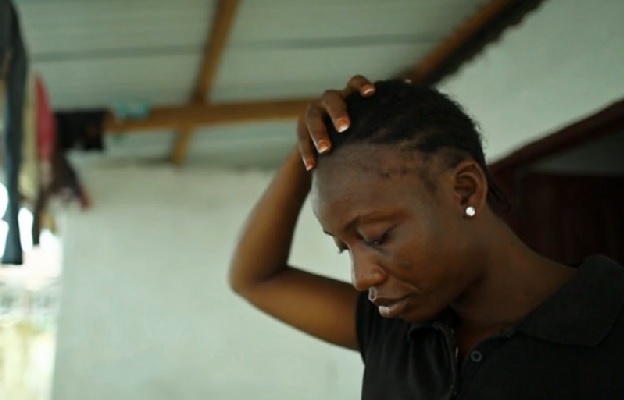
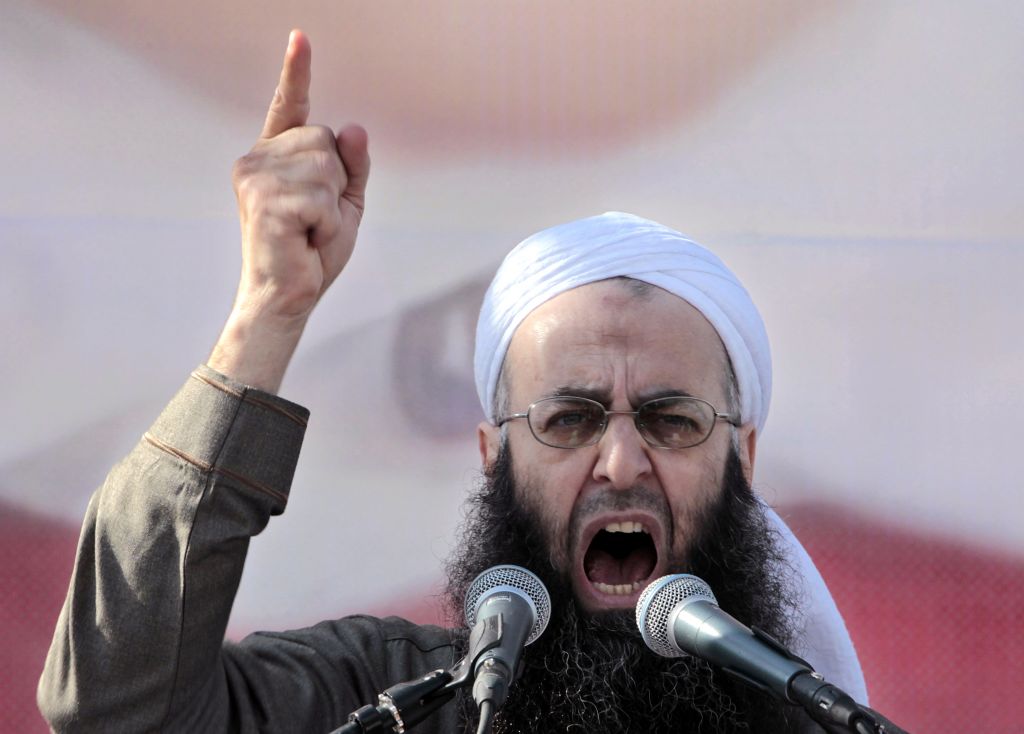
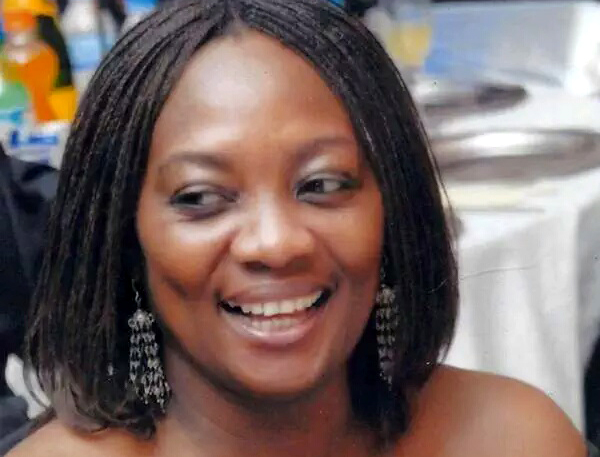
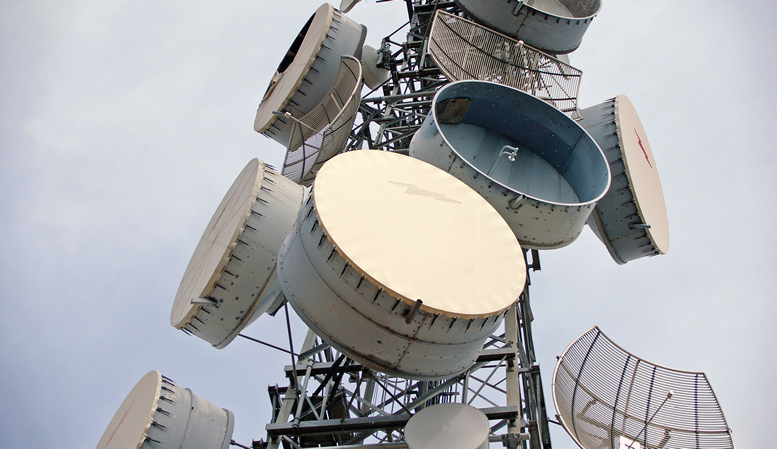
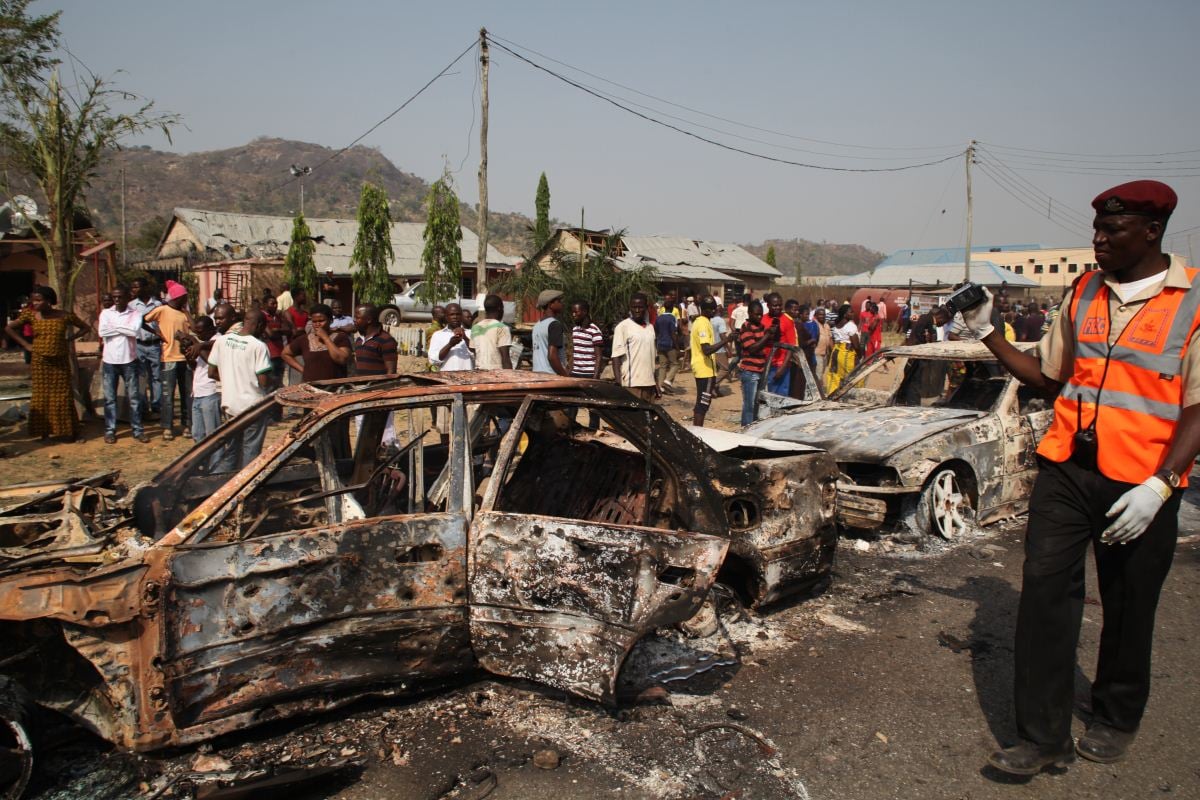
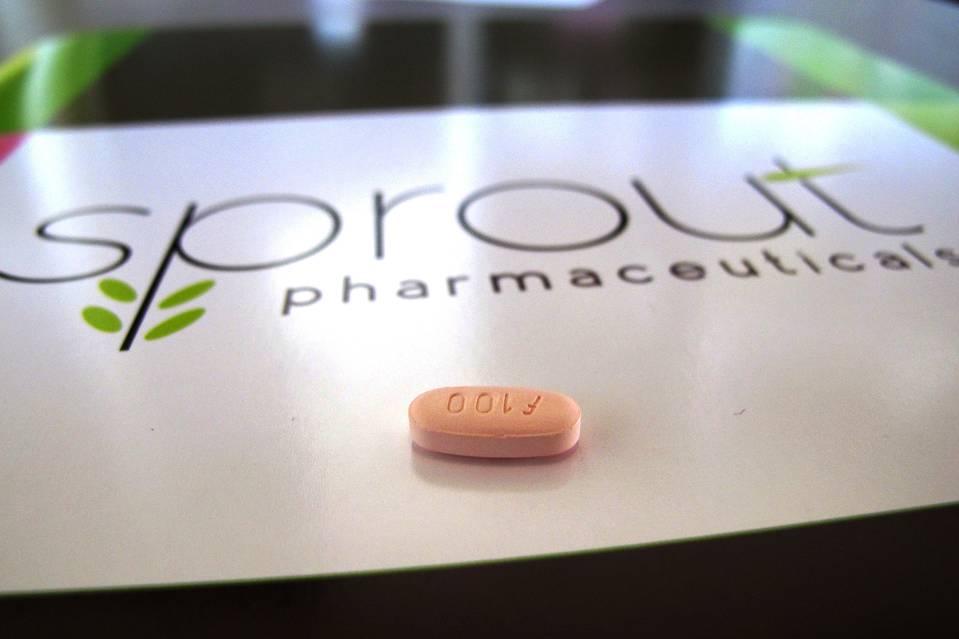

It is really sad, the way we Africans treat ourselves…Kent Brantly is a US Hero for ‘merely’ survinving Ebola, with the use of ZMAPP. But we who survive it on ‘paracetamol’ are seen as villians. sad!